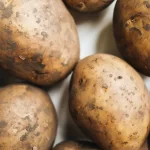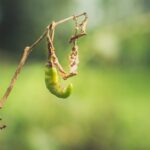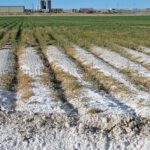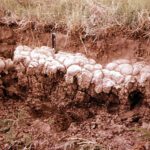Nematodes are tiny worm-like critters that live in the soil. Most of these organisms do not represent any threat to agriculture, since they feed on fungi, bacteria and other organisms.
However, there are some that do represent a risk for vegetable production because they feed on their roots.
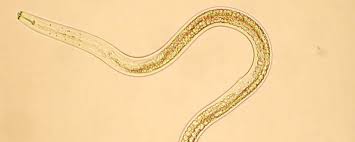
Problems caused by nematodes.
Nematodes manage to enter the root and live inside it, or they can feed outside of it. And since they live underground and their size is tiny, it is very difficult to see them with the naked eye, this makes diagnosing a nematode problem difficult. In general, plants infected with Nematodes present some of the following symptoms:
- Plants show reduced growth
- The leaves show chlorosis
- Problems with plant maturity can be early or late
- Although soil moisture is appropriate, wilting occurs
- In the root can be observed, lesions in the form of black dots, reduced growth, knots or galls appear, swelling of the roots
Main species of nematodes
| Nematode | Symptom | Crops |
|---|---|---|
| Meloidogye | Galls on roots, weakening of the aerial part. | Vegetables, fruit trees, cereals and legumes. |
| Pratylenchus | Injuries and destruction of roots, weakening of the aerial part. | Vegetables, fruit trees, cereals and legumes. |
| Globodera, Heterodera | Necklace beads on the plant, weakening of the aerial part. | Vegetables, fruit trees, cereals and legumes. |
| Dytilenchus | Distortions in leaves and bulbs. | Vegetables (onion). |
| Tylenchulus semipentrans | General weakening of the plant. | Citrus. |
| Xiphinema, Longidorus | General weakening of the plant. Virus transmission. | Vines, fruit trees. |
| Trichodorus, Pratrichodorus | General weakening of the plant. Virus transmission. | Numerous crops. |
| Aphelenchoides | Distortion and necrosis of leaves. | Rice, strawberry. |
| Anguina | Deformations in spikes and grains. | Cereals. |
Nematicides
Fagro as an expert in Pest Biocontrol has Nemabiol® Plus. It is a nematicide of nemabiol-plus Bacillus subtilis + Trichoderma harzianum organic origin, derived from Castor extract and multibacterial complex (Bacillus subtilis + Trichoderma harzianum).
The components of the product alter the permeability of the membrane, causing an imbalance in the internal metabolism of the nematode. In addition, they block the supply of substances necessary for their growth.
Castor oil (Ethyl Dodecanoate), has the ability to adhere strongly to the amphidia of phytoparasitic nematodes, thus modifying their chemotactic behavior.
It belongs to the group of ribosome-inactivating proteins, RIPs, type 2, which are characterized by having two polypeptide chains: one capable of inhibiting protein synthesis in the ribosomes and another with lectin properties, that is, capable of binding to carbohydrates. of carbon.
 AgronoBlog – Agriculture Blog
AgronoBlog – Agriculture Blog 
